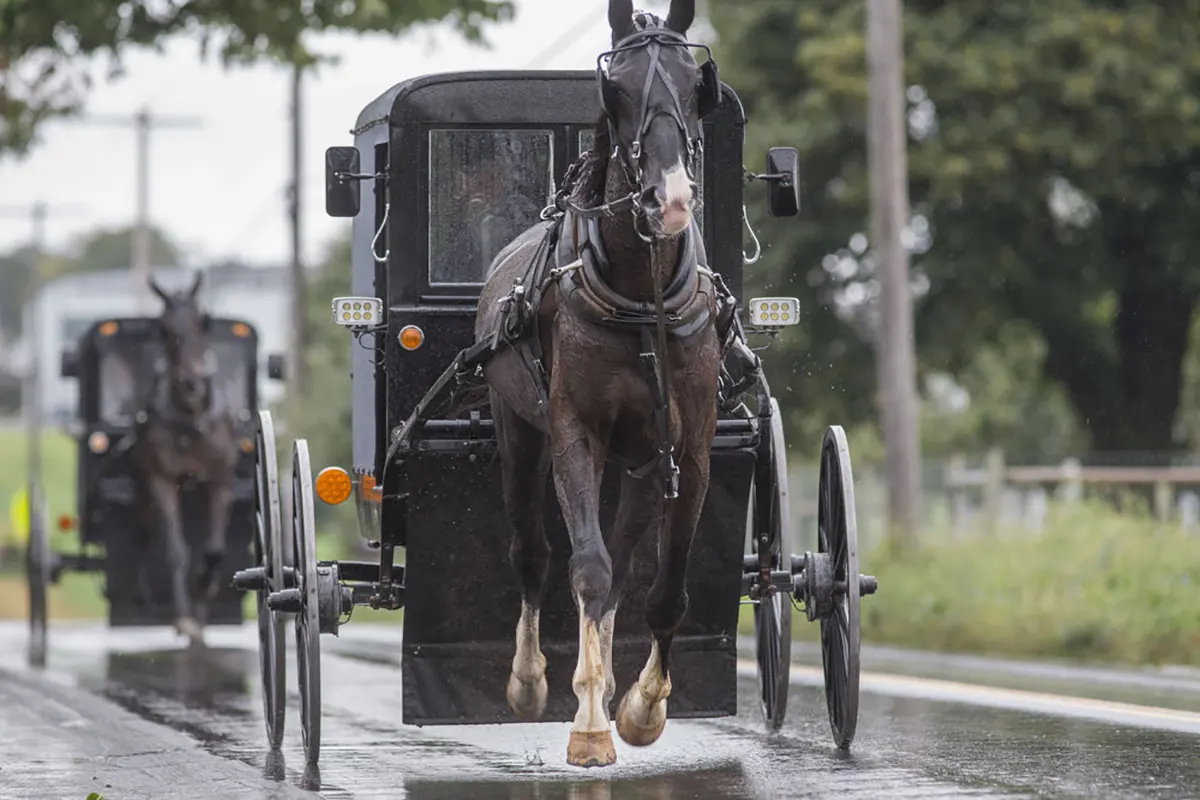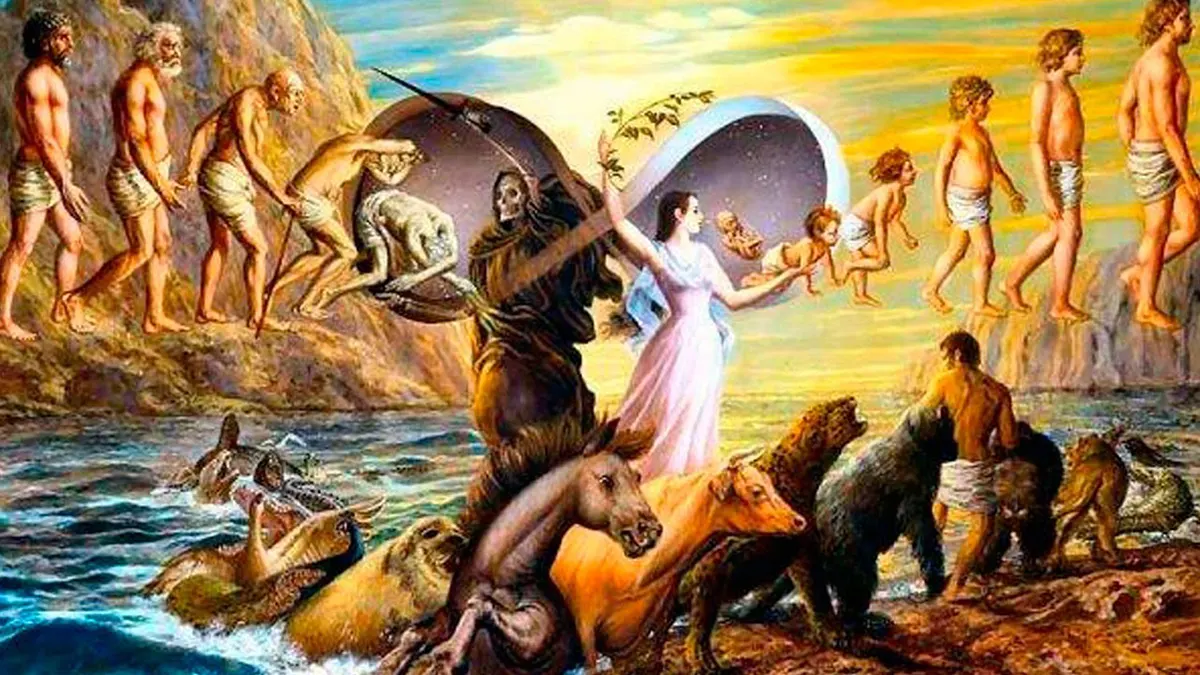
Rooted in a rich history that spans centuries, the Amish communities lead a simple and devout lifestyle guided by their religious beliefs. Central to their faith is the concept of the end of life, which encompasses the physical transition from this world and the spiritual journey that follows. But, what do the Amish believe about the end of life?
The Amish people believe death is a natural part of life, viewing it as God’s will and an opportunity for spiritual growth. They prioritize peaceful, natural deaths and emphasize the importance of family and community support during illness and approaching death, with the ultimate hope of attaining salvation and eternity in the heavenly realm.
Amish and The Idea of End of Life
The perspective of Amish communities on the end of life is deeply embedded in their Christian faith and commitment to a simple, communal existence.

Through their unique rituals and unwavering hope for eternity, they navigate the mysteries of the afterlife with worship, faith, love, and an abiding trust in God’s divine plan.
Let’s explore the profound spiritual perspectives and rituals that shape the Amish beliefs on dying, shedding light on their views of death, funeral customs, and the eternal destiny of the departed.
The Sacred Journey of Life’s End
Following their Christian faith, the Amish see death as God’s will and an opportunity for spiritual growth. They view each individual’s existence as a sacred journey filled with opportunities to seek salvation and develop a personal relationship with God.
Therefore, the end of life is seen as a significant transition, marking the soul’s passage from this earthly existence to the eternal realm. They find comfort in the assurance that their dead loved one is already in the presence of God, experiencing everlasting joy and peace.
Peaceful and Natural Deaths
The Amish value simplicity and prioritize peaceful, natural deaths whenever possible. They favor home care for the terminally ill, believing that being surrounded by loved ones in familiar surroundings can provide comfort and solace during the dying process.

This approach aligns with their broader lifestyle choices, as the Amish typically shun modern technology and medical interventions.
Instead, they place their trust in God’s grace and providence and rely on prayer, community support, and natural remedies to ease the physical and emotional burden of those nearing the end of life.
Amish Community Support
In Amish culture, the importance of family and community support cannot be overstated, particularly during times of illness and approaching death.
When an Amish community member falls ill, family members and children, friends, and fellow church members rally together to provide physical, emotional, and spiritual support.
Each Amish person accepts that he is responsible for the welfare of his fellow church members. This Amish commitment to the teachings of the church is one of the reasons why Amish families prioritize visiting the sick, offering prayers, preparing meals, and assisting with daily tasks.
The Amish community members believe this support helps ease the burdens of the dying individual and their immediate family, fostering an environment of love, compassion, and solidarity during these challenging times.
Amish Funeral Service Rituals and Mourning Practices

Every Amish funeral service reflects the community’s commitment to simplicity and humility. Rather than elaborate displays of wealth or status, the focus of their funeral traditions is on honoring the deceased and celebrating their existence within the context of their faith community.
Amish funeral services are typically held at the family’s home, barn, or a nearby church, with the entire Amish community gathering to pay their respects. The services are solemn, with prayers, hymns, and scripture readings from the community’s ordained ministers.
Following the service, the deceased will rest in a plain wooden casket, reflecting the Amish aversion to ostentation. Afterward, men helping with the burial will fill the grave with spades.
Amish Beliefs on Eternal Destiny
According to centuries-old Amish beliefs, through their obedience to God’s commandments and adherence to the principles of their faith, each Amish individual can secure a place in the heavenly realm after death.
The Amish hold steadfast in the hope of being reunited with the souls of those who died, creating a sense of continuity and eternal connection within their close-knit community.
How Do the Amish Attain Salvation at the End of Life?

The Amish trust that salvation is attained through faith in Jesus Christ, crucial for a peaceful and hopeful transition into the afterlife. This is why they dedicate their lives to building a personal relationship with Jesus and accepting His redemptive work.
They firmly believe that by acknowledging their sins, repenting, and surrendering their lives to Christ, individuals can experience forgiveness and reconciliation with God.
In the context of end-of-life beliefs, the Amish trust that the moments leading up to death present an opportunity for reflection, repentance, and spiritual preparation.
They view this time as an opportunity for the dying individual to express their faith, seek reconciliation with others, and make peace with the Lord.
Prayers, scripture reading, and communal support are often integral aspects of this process. This is where the support of the entire community comes in.
The community gathers to offer prayers and companionship, ensuring that the dying individual feels surrounded by love and the assurance of salvation.
What do the Amish Think of Heaven?
The Amish hold strong assumptions about heaven, which they view as a realm of eternal joy, peace, and communion with God. They believe heaven is the ultimate destination for those who have lived a faithful and righteous life according to their Christian beliefs.

In Amish theology, heaven is a place of reward and fulfillment, where the souls of the departed are reunited with their loved ones and enjoy eternal fellowship with God.
The Amish believe heaven is a physical place rather than a symbolic or abstract concept. They envision it as a perfect and harmonious world without pain, suffering, or sin.
In heaven, the Amish people anticipate restoring all things, including the relationships cherished on Earth.
This Amish belief in eternal reunions brings solace and comfort to the Amish during times of loss and grief, assuring them that separation is temporary and that everlasting togetherness awaits in heaven.
What do the Amish Think of the Afterlife?
The Amish idea of the afterlife shapes their perspectives on mortality and influences their choices and behavior in this earthly existence. They believe in heaven and hell as distinct realms for the eternal destiny of souls after death.
The Amish Assumptions of Heaven
The Amish view heaven as a place of eternal joy, peace, and communion with God. They believe those who have lived a faithful and righteous existence will be granted salvation and entry into God’s kingdom.
In heaven, they anticipate being reunited with the souls of family members who have passed away, experiencing eternal fellowship and the presence of God. The Amish envision God’s kingdom as a realm free from pain, suffering, and sin, where they can enjoy eternal bliss.
The Amish Assumptions of Hell
Conversely, the Amish believe in hell as a place of separation from God and spiritual torment. They see it as a consequence for those who have rejected God’s teachings or lived contrary to His commandments.

While the Amish do not dwell extensively on the specifics of hell, they believe in its reality as a place of punishment and separation from God’s grace.
Do the Amish Believe in Reincarnation?
Reincarnation is the idea that a person’s soul is reborn into a different form or body after passing. Like any other Christian religious group, the Amish do not believe in reincarnation, as they hold a different belief regarding the afterlife.
The Amish firmly hold the concept of a single earthly existence followed by a transition to an eternal realm. No Amish person believes in the cycle of birth, death, and rebirth central to reincarnation.

Instead, the Amish trust that after death, the soul undergoes judgment by God, which determines its eternal destiny.
The Amish view each individual’s existence on Earth as a unique opportunity to make choices and demonstrate faithfulness to God. They believe in the essence of living a righteous and virtuous lifestyle during their time on Earth, as it has implications for their eternal fate in the afterlife.
The concept of reincarnation does not align with their understanding of this singular opportunity and the soul’s judgment after death.
Conclusion
The Amish view death as a natural part of the earthly journey and approach it with acceptance and peace. They believe in the hope of salvation and the concept of eternal life through faith in Jesus Christ.
With a focus on reconciliation, forgiveness, and spiritual preparation, the Amish strive to ensure a peaceful transition into the afterlife.
Their beliefs provide comfort, guidance, and a sense of purpose as they navigate the inevitable passage from this earthly existence to the eternal realm.
